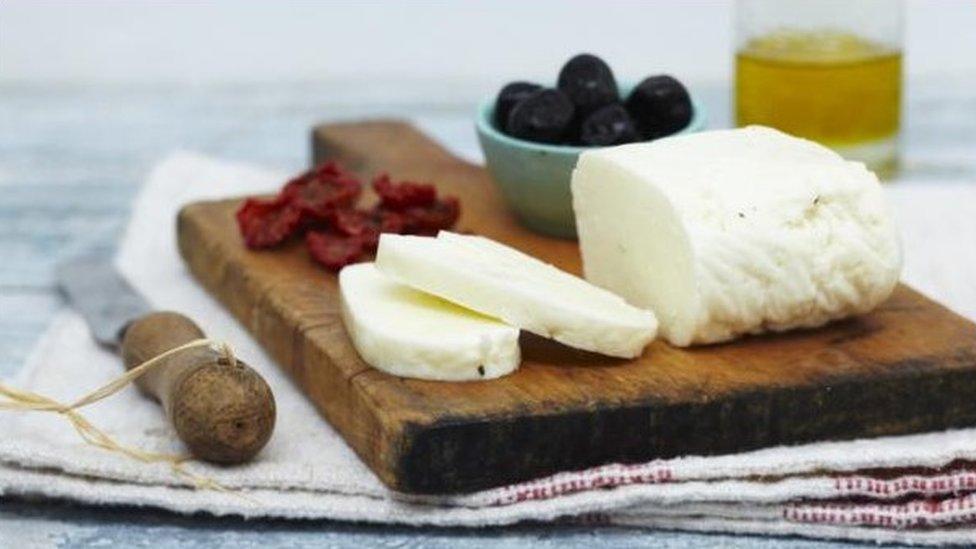Scottish scientists aim to improve halloumi cheese production
- Published

Scottish scientists are helping to secure the future of halloumi cheese, in an effort to support Cyprus' biggest food export.
Edinburgh University researchers are working with farmers to design selective breeding programmes by investigating genetic differences linked to increased milk production.
The aim is to boost milk yields from goats and sheep on the island.
Halloumi accounts for more than 15% of Cypriot domestic exports.
The UK is the number one market.
Cow's milk
Dr Ricardo Pong-Wong, of the university's Roslin Institute, said: "The project combines our specialism in animal genetics and genomics with expertise in plant and microbial genetics.
"It will allow implementation of an effective scheme to secure the future of halloumi that takes into account the unique conditions associated with farming Cypriot goats and sheep."
Much of the halloumi that reaches supermarket shelves currently contains a significant proportion of cow's milk, which is cheaper and more widely available.
Cyprus has applied for the cheese to be recognised with protected designation of origin (PDO) status - a European Union award designed to protect traditional, regional foods against imitation.
It would stipulate that halloumi must be produced predominantly from Cypriot sheep and goat milk.
Research centre
If the PDO is granted, milk production from Cypriot sheep and goat breeds will need to increase substantially to ensure current demand for halloumi cheese is satisfied.
The Agricygen partnership - funded by the European Union - connects research institutions in Cyprus with world-leading experts in agricultural genetics from the UK, France and Germany.
The University of Edinburgh's Roslin Institute is among those taking part.
A new research centre will be set up in Cyprus to increase the country's capacity for analysing animal and plant genomes.
The centre will also train early career scientists.